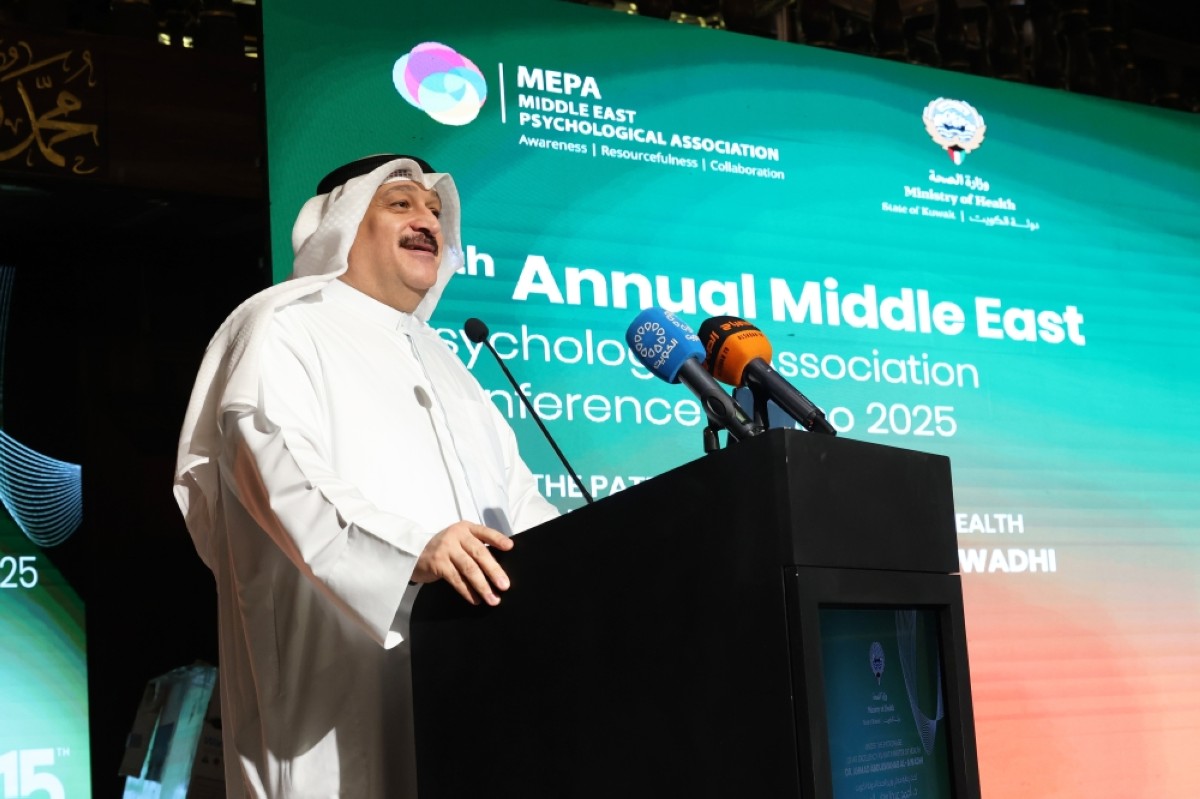KUWAIT: Commercial licenses for mental health treatment and counseling centers will not be renewed after April 20, 2026, unless they comply with new regulations issued to govern the sector, Kuwait’s health minister said Thursday.
Last week, Minister Dr. Ahmad Al-Awadhi announced a first-of-its-kind regulatory framework setting new professional standards for private mental health centers and clinics. The rules require facilities to secure patient data systems to ensure confidentiality, employ licensed practitioners — including at least one psychologist with a doctoral degree — and comply strictly with ethics and healthcare regulations. Facilities must also be located in accessible areas.
“These measures reflect our commitment to building a safe, professional, and inclusive therapeutic environment — one that prioritizes human rights, preserves dignity, and strives for the highest standards of medical and psychological care,” Al-Awadhi said Thursday in his first public comments on the new rules.
Speaking on the sidelines of the 8th Annual Conference and Exhibition of the Middle East Psychological Association (MEPA), Al-Awadhi highlighted the ministry’s latest efforts to develop mental health research and regulations, emphasizing that sound public health policy must be grounded in an accurate understanding of the social realities shaping society.
“Mental health is not only about treating disorders — it is also about strengthening psychological resilience, preventing risk factors, and empowering individuals with the emotional and social tools they need to thrive,” Al-Awadhi said.
He highlighted the governments newly adopted integrated approach that brings together psychological and psychiatric services, bridging clinical care with community-based psychosocial support programs. This model, he said, is guided by the latest scientific standards and leading international best practices.
Dr Joanne Hands, President of MEPA, spoke about expanding access to mental health resources beyond clinical settings. “What makes this event truly unique is that it’s open to the general public,” she said. “We believe professional walls must be expanded. By educating and empowering individuals and families, we can reduce stigma and promote mental wellness for all.”
Hands also unveiled MEPA’s upcoming focus on corporate membership and engagement, emphasizing the direct link between employee well-being and organizational success. “We now invite the corporate sector to be active partners in shaping healthier workplaces,” she said. “Well-being is not a luxury — it’s a necessity.”
Waleed Al-Khashti, Chief of Corporate Communications & Relations at Zain Kuwait, the event’s Platinum Sponsor, reaffirmed the company’s continued commitment to mental health advocacy. Zain has supported the conference for three consecutive years and launched one of the region’s largest workplace mental health initiatives — Be Well.
“At Zain, we believe people flourish in environments that support them emotionally, professionally, and personally,” Al-Khashti said. “Our work extends beyond therapy access — we’ve certified employees as Mental Health First Aiders and fostered a workplace culture rooted in psychological safety.” He added that Zain is actively working with MEPA to deepen collaborations that benefit both employees and communities across the region.


















